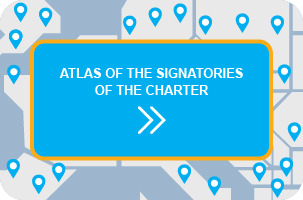Learn from French experiences
Learn from French experiences
The Hubertine Auclert Centre was launched and is funded by the regional Council of Paris. Its mission is to promote gender equality and raise awareness on discrimination and equal rights.
The Centre is composed of NGOs, elected representatives and trade unions and also works to support members to set up projects fight gender discrimination in schools and provide information and material through their website.
In 2013, the Centre made a survey on gender equality policies in 30 local and regional authorities in France. The result was presented in the publication “Local policies for Equality in France” which gathers interesting information on equality work at local level in France. A special focus is put on the elaboration and use of action plans. The study has also identified major obstacles in implementing gender equality policies at local level (financial resources, proper coordination between departments and a need for increasing awareness-raising) but also “factors of success”.
- “Factors of success”
1) Having an elected representative in charge of gender equality or women’s rights – this must be complemented by a strong political commitment
2) Have a specific budget allocated for gender equality issues
3) Have a person in charge of gender equality issues working at the municipality full-time
4) Make sure that staff working at other departments have time to devote for gender equality issues
5) Training and awareness raising
- Good practices
The publication also presents a number of examples of good practices in different areas related to the European Charter such as: Access to housing, Health, Culture, Sports, Education, Employment, Fight against poverty, Work-life balance, Promoting non-stereotypical communication, Fight against gender-based violence, Visibility of women in the public spaces, Security in public spaces, Mobility and transports, Mobilization and training of actors in gender equality, European and International cooperation
- The European Charter for Equality
The publication highlights the European Charter for Equality as a great tool to initiate gender equality work. By signing the Charter, the Municipal or Regional council makes a public commitment to engage in gender equality policies and undertakes to elaborate an action plan. Even though the Charter is not binding, it provides a methodology by exemplifying, in different ways, how you can work with equality in different areas of competences.
- European programmes
In the same way, European programmes can work as a framework to elaborate an action plan, or initiate projects focusing on gender equality. Among the French local and regional governments that participated in the study, several had participated in European projects such as Equal or RURACT. The experiences from these projects were very positive, and the exchange of experiences and good practices played an important role for the local authorities that participated in these projects.
To conclude, the survey showed that establishing networks with other actors is very beneficial in the way that it allows local and regional authorities to learn from others experiences, and thereby be able to innovate and renew policies.













